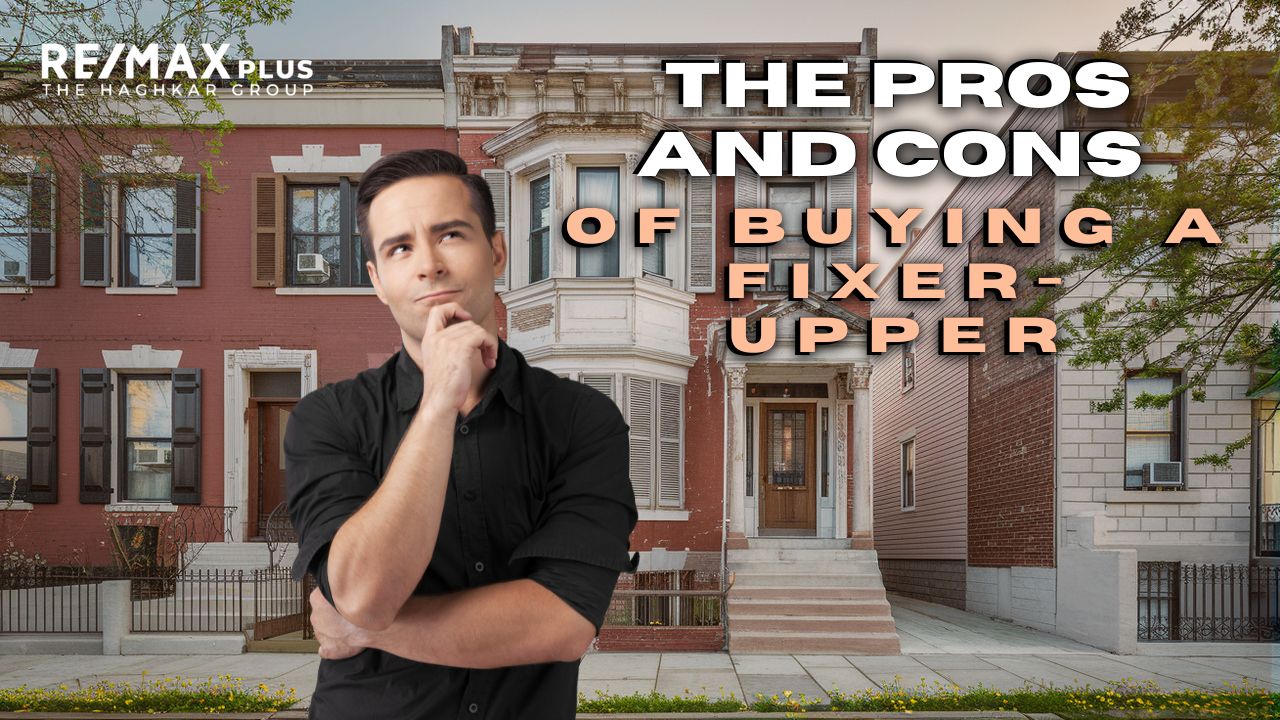
09 Dec The Pros and Cons of Buying a Fixer-Upper
Investing in a fixer-upper property can be an exciting and rewarding venture for homebuyers and real estate investors alike. These properties, often sold below market value due to their need for repairs or updates, offer the promise of customization and financial gain. However, buying a fixer-upper isn’t without its challenges. Before jumping into such a purchase, it’s important to weigh the advantages and drawbacks to ensure it’s the right choice for your goals, budget, and expertise.
The Pros of Buying a Fixer-Upper
1. Lower Purchase Price
Fixer-upper properties are typically priced lower than move-in-ready homes, making them an attractive option for budget-conscious buyers or those looking to enter a competitive market.
- Opportunity for Entry-Level Buyers: Buyers who might struggle to afford a home in a desirable neighborhood can often find opportunities through fixer-uppers.
- Room for Negotiation: Sellers are often more willing to negotiate on price when the home requires substantial work, giving buyers additional leverage.
2. Potential for Increased Equity
One of the biggest draws of buying a fixer-upper is the potential to build significant equity through renovations.
- Value Appreciation: By making strategic upgrades, you can increase the property’s market value beyond the cost of the renovations.
- Sweat Equity: If you have the skills to perform some of the repairs yourself, you can save on labor costs and add even more value to the home.
3. Customization
Fixer-uppers allow buyers to tailor the home to their preferences, making it uniquely theirs.
- Personal Touches: Choose layouts, finishes, and designs that reflect your style and needs.
- Avoid Settling: Instead of compromising on features, you can create the home you’ve always envisioned.
4. Investment Opportunities
For real estate investors, fixer-uppers can provide lucrative opportunities for flipping or long-term rentals.
- Fix-and-Flip: Renovate and sell for a profit.
- Rental Income: Update the property and rent it out for passive income while benefiting from long-term appreciation.
The Cons of Buying a Fixer-Upper
1. Unpredictable Costs
One of the biggest risks of buying a fixer-upper is the potential for unexpected expenses.
- Hidden Problems: Issues like faulty wiring, plumbing leaks, or structural damage may not be immediately visible during initial inspections.
- Budget Overruns: Renovation projects often cost more and take longer than anticipated, putting strain on your finances.
2. Time-Consuming
Renovations require significant time and effort, which can be overwhelming for buyers juggling jobs, families, or other responsibilities.
- Delayed Move-In: Extensive repairs might mean months before the home is livable.
- Project Management: Coordinating contractors, permits, and materials can become a full-time job.
3. Stress and Uncertainty
The process of renovating a home can be fraught with challenges, from unexpected delays to dealing with contractors.
- Emotional Toll: The stress of managing renovations can strain relationships and lead to buyer’s remorse.
- Uncertain ROI: There’s no guarantee the property’s value will increase as much as expected, especially if market conditions change.
4. Financing Challenges
Securing financing for a fixer-upper can be more complicated than for a move-in-ready property.
- Limited Loan Options: Traditional mortgages may not cover the cost of renovations.
- Specialized Loans: Options like FHA 203(k) or Fannie Mae HomeStyle loans are available but may have stricter requirements and higher interest rates.
How to Decide if a Fixer-Upper is Right for You
1. Evaluate Your Skills and Resources
Are you handy or experienced with renovations? Or will you need to hire contractors for most of the work? Understanding your capabilities will help determine the feasibility of taking on a fixer-upper.
2. Set a Realistic Budget
Include the purchase price, renovation costs, and a buffer for unexpected expenses. Be honest about what you can afford without overextending yourself.
3. Understand the Scope of Work
Before buying, get a professional inspection to uncover potential issues. Know what repairs are necessary and prioritize them to avoid costly surprises later.
4. Research the Market
Ensure the home is in a location with strong market potential. Look at comparable properties to gauge the potential value after renovations.
Tips for Successfully Buying a Fixer-Upper
Work with an Experienced Real Estate Agent
An agent familiar with fixer-uppers can help you identify properties with the best potential and guide you through the negotiation process.Partner with Reliable Contractors
If you’re outsourcing renovations, vet contractors thoroughly to ensure they’re reputable and experienced.Start Small
If you’re new to home renovations, consider a property that needs mostly cosmetic updates rather than major structural repairs.Prioritize High-Value Improvements
Focus on upgrades that provide the best return on investment, such as kitchen remodels, bathroom updates, or curb appeal enhancements.Understand Permits and Regulations
Ensure all renovations comply with local building codes and obtain the necessary permits to avoid fines or legal issues.
So is buying a fixer-upper right for you?
Buying a fixer-upper can be a fantastic opportunity to save money, build equity, and create a home that reflects your style. However, it’s not a decision to be taken lightly. The process requires careful planning, a realistic understanding of costs, and a willingness to put in the time and effort to bring your vision to life.
Whether you’re a first-time buyer looking for an affordable entry point into the market or an investor seeking your next project, the key is to weigh the pros and cons and approach the purchase with clear goals and a solid plan.
If you’re ready to explore the world of fixer-uppers or have questions about whether this type of property is right for you, contact a real estate professional who can guide you through every step of the journey.

